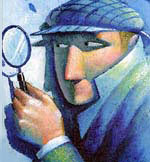
|
|
||||
|
Today is January 07th , 2026
FRAUD ALERT
QUEBECRECOMMENDATIONBooks |
Commentaries on the law of EnglandFrom Wikipedia, the free encyclopedia The Commentaries on the Laws of England is an influential 18th century treatise on the common law of England by Sir William Blackstone, originally published by the Clarendon Press at Oxford, 1765-1769. The Commentaries were long regarded as the leading work on the development of English law and played a role in the development of the American legal system. It was in fact the first methodical treatise on the common law, suitable for a lay readership, since at least the Middle Ages. The common law of England, relying on precedent more than on statutes and codifications, was far less susceptible than the civil law developed from Roman law to the needs of a writer of a treatise. It was influential largely because it was in fact readable, and because the work met a need. The work is as much an apologia for the legal system of the time as it is an explanation of it; even when the law was obscure, Blackstone always sought to make it seem rational, just, and inevitable that things should be exactly how they were. The Commentaries are frequently quoted as the definitive pre-Revolutionary War source of Common Law by US courts; in particular, the United States Supreme Court quotes from Blackstone's work whenever they wish to engage in historical discussion that goes back that far, or further (for example, when discussing the intent of the Framers of the Constitution). Blackstone's work is divided into four volumes: � The Rights of Persons is by and large concerned with the relations of status in the English social structure, from the King of England and the aristocracy down to the untitled commoners. Also dealt here were common relationships such as that of husband and wife, "master and servant", what we would now call employer and employee, and guardian and ward. � The Rights of Things, Blackstone's longest volume, deals with property. The vast majority of the text treats of real property, this being the most valuable sort in the feudal law upon which the English law of land was founded. Property in chattels was already beginning to overshadow property in land, but its law lacked the complex feudal background of the common law of land, and was not dealt with by Blackstone at anywhere near the space he devoted to land. � Of Private Wrongs dealt with torts as they existed in Blackstone's time. The various methods of trial that existed at civil law were also dealt with in this volume, as were the jurisdictions of the several courts, from the lowest to the highest. Blackstone also adds a brief chapter on equity, the parallel legal system that existed in English law at the time, seeking to address wrongs that the common law did not handle; the chapter on equity seems almost an afterthought. � Of Public Wrongs is Blackstone's treatise on criminal law. Here, Blackstone the apologist takes centre stage; he seeks to explain how the criminal laws of England were just and merciful, a hard task when you consider that the statute books of the time prescribed the same penalty of death both for the theft of a shilling and for murder. Blackstone frequently had to resort to the devices of assuring his reader that the laws as written were not actually enforced, and that the King's power of pardon existed to correct any hardships or injustices. While there is much valuable historical information in the Commentaries, later historians have tended to be somewhat critical of the uses Blackstone made of history. There is a lot of what would later be called "Whig history" in the Commentaries; the easy and contradictory assurance that England's current political settlement represented the optimal state of rational and just government, while claiming simultaneously that this optimal state was an ideal that had always existed in the past, despite the many struggles in England's actual history between overreaching kings and wayward Parliaments. But Blackstone's chief contribution was to create a succinct, readable, and above all handy epitome of the common law tradition. While useful in England, Blackstone's text answered an urgent need in the developing United States. Here the common law tradition was being spread into frontier areas, but it was not feasible for lawyers and judges to carry around the large libraries that contained the common law precedents. The four volumes of Blackstone put the gist of that tradition in portable form. They were required reading for most lawyers in the Colonies, and for many, they were the only reading. Blackstone's Whiggish but conservative vision of English law as a force to protect people, their liberty, and their property, had a deep impact on the ideologies that were cited in support of the American Revolution, and ultimately, the United States Constitution. Quotations� "That the king can do no wrong, is a necessary and fundamental principle of the English constitution." � "It is better that ten guilty persons escape than one innocent suffer." |
LEGAL ABUSE SYNDROME |
||
Justice is a conscience, not a personal conscience but conscience of the whole of the humanity.
Those who clearly recognize the voice of their own conscience usually recognize also the voice of Justice.
Alexander Solzhenitsyn

